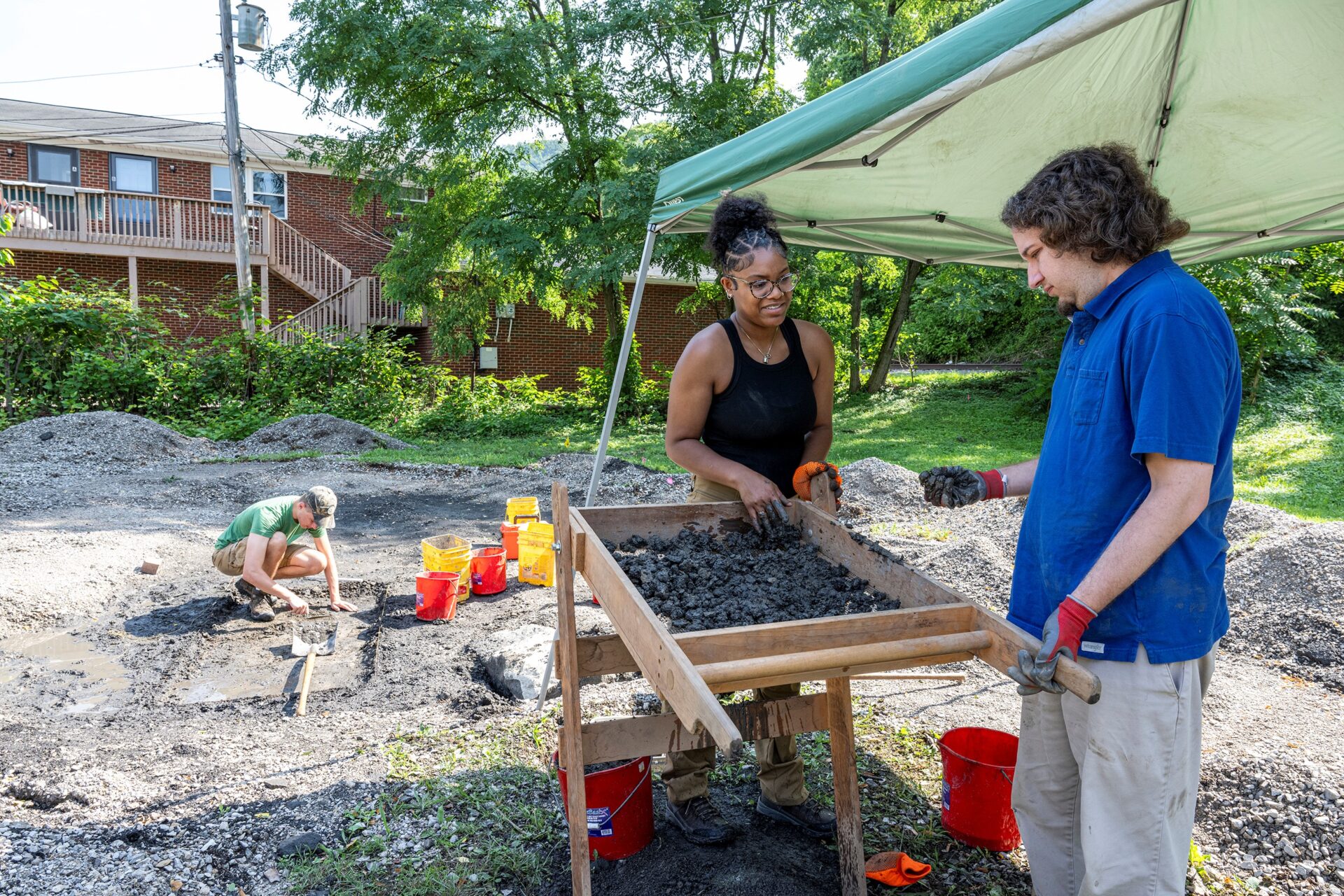West Virginia State University (WVSU) is having its archaeological field school at the historic Hale House in Malden in eastern Kanawha County. For four weeks, students have been digging up West Virginia history for their History 399 class.
“We do a field school which is a learning experience for the students,” said Michael Workman, class instructor. “They learn some of the basic techniques of archaeology. This is, however, historical archaeology and that we use not only what we can dig, but also historical records.”
Credit: Jack Bailey/West Virginia State University
Credit: Jack Bailey/West Virginia Public Broadcasting
The Hale House is believed to have once been the house of Kanawha Valley politician, Dr. John Hale. Hale was the owner of the largest salt works in North America, supplying salt to the thriving meat packing center of Cincinnati. After the collapse of the salt business in the 1870s, he ventured into brick making machinery, the Bank of the West in Charleston, which he helped organize, as well as the city’s first gas company.
The archaeological dig project came about after a chance meeting with Bob Maslowski, a consultant, and Lewis Payne at Dickinson Salt-Works.
“We came up with the idea of getting a field school started at Dickinson Salt Works and maybe, have it turn into a long-term project,” said Maslowski “As it turned out, this particular site came up and we decided to start the excavations here, at the Hale House. We thought originally that it was occupied by John Hale who was a famous historian and salt maker and we haven’t been able to substantiate that, but it is one of the early houses in Malden and in the Kanawha Valley.”
Hale helped initiate the move of the state capitol to Charleston in 1870 and headed a group of investors who built the capitol building in 1871. Hale also became the mayor of Charleston that same year.
Credit: Jack Bailey/West Virginia State University
Carl Demuth is the field coordinator for the project and an adjunct professor at Marshall University. He said it is important for students to learn about the lives of people in history.
“There’s not many other opportunities you have to be the first person to hold something that no one else has touched in fifty, a hundred, two hundred, a thousand years, and that’s what a lot of these students are doing,” Demuth said. “Working with these students lets them have the chance to embrace their own heritage and history in a way that’s a little bit different and, you know, that’s really why I’m out here.”
